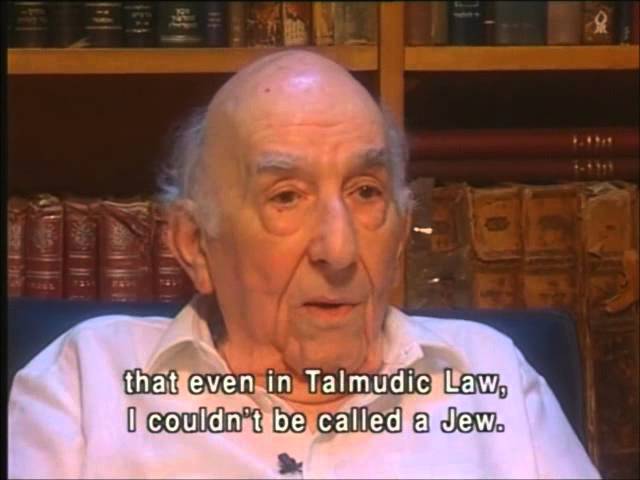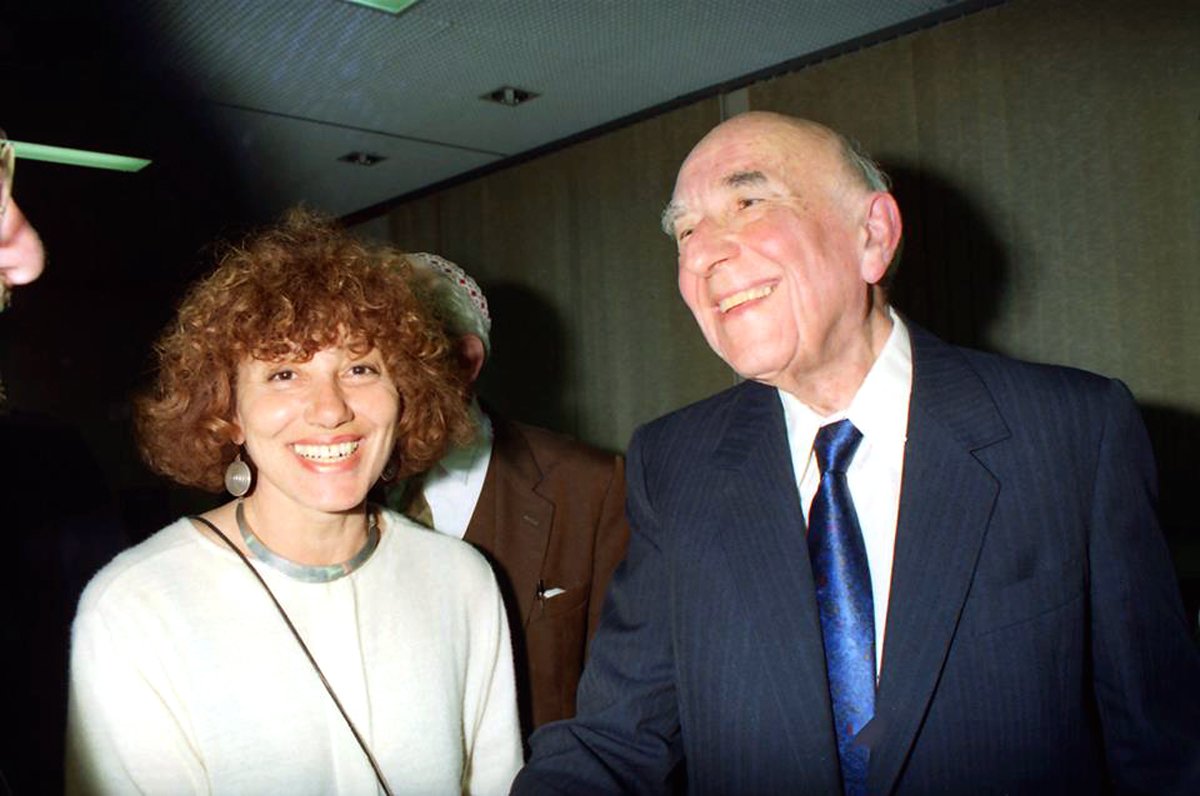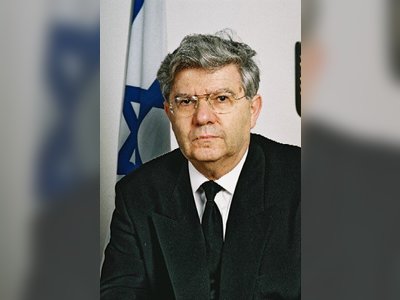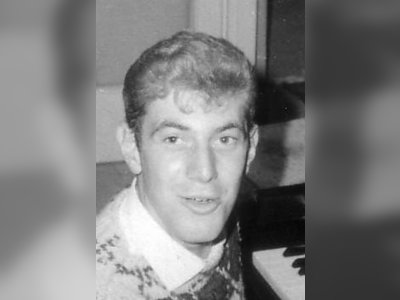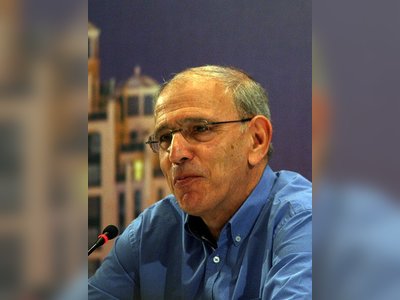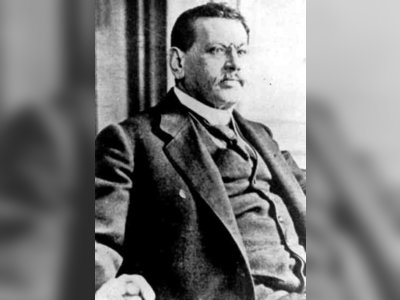מורשת גדולי האומה
בזכותם קיים
beta
Chaim Cohen: An Israeli Legal Luminary
Chaim Hermann Cohen (March 11, 1911 – April 10, 2002) was a prominent Israeli jurist who held several key positions in the Israeli legal system, including Minister of Justice, State Prosecutor, Legal Advisor to the Government, and Deputy to the President of the Supreme Court. He was a recipient of the Israel Prize for Legal Sciences in 1970.
Early Life and Education
Chaim Cohen was born in Leipzig, Germany, as one of four children in an Orthodox Jewish family that harmonized religious observance with a commitment to knowledge. His maternal grandfather, Rabbi Shlomo Karlibach, was a renowned Talmudic scholar from whom he began studying at the age of three, continuing until the age of nine. His paternal grandfather, Zev Wilhelm (Willy) Cohen, was a banker and rabbi. Chaim Cohen's older brother, Alexander Cohen, was a notable philologist specializing in ancient Greek and published an academic edition of the works of the philosopher Philo of Alexandria. Chaim's family had diverse interests and a strong emphasis on education and general culture. Although he initially resisted Zionism, considering it a form of "the final push," his family had several Zionist members, such as his cousin, Azriel Carlebach. Chaim Cohen was also related to Rabbi Shlomo Karlibach, known as the "Dancing Rabbi."
At the age of 18, Chaim Cohen immigrated to British Mandate Palestine, not due to Zionist motivations (his parents wished for him not to rush into marriage), and enrolled in Yeshivat Merkaz HaRav in Jerusalem, alongside his brother Alexander under the guidance of their cousin, Rabbi Azriel. During this period, he spent almost two years immersed in Torah study while also attending the Hebrew University of Jerusalem. He later credited Rabbi Abraham Isaac Kook for his significant influence, both in terms of Zionism and his personal character, describing him as a man of humility, ethics, and humanity. Reflecting on his time at the yeshiva, Cohen recalled that he was drawn towards the field of law after attending classes by Rabbi Jacob Moses Charlop, focusing on the legal aspects of life.
Chaim Cohen returned briefly to Germany after Adolf Hitler came to power in 1933 but later immigrated permanently to Palestine. He began working at the law firm of Dr. Mordechai Ben-Tovim in Jerusalem. It was during this time that his Zionist views became more defined, eventually seeing Zionism as a modern replacement for traditional Judaism.
His departure from Germany raised questions about his ideological commitment, and he was heavily involved in the secular world's activities, which exposed him to uncomfortable aspects of the Haredi community in Jerusalem, particularly during his tenure as a young prosecutor in the legal department of Agudat Yisrael. His first wife, who was not religiously observant, also contributed to this shift in his life. However, the Holocaust served as the catalyst for his final transformation into a secular Jew. In 1948, upon the advice of his cousin Rabbi Yedidia Cohen, he formally renounced his Orthodox Judaism.
Contributions to Israeli Legal System
In December 1947, Chaim Cohen was appointed as the Secretary of the Legal Council of the national institutions, which laid the legal groundwork for the future state of Israel. In this role, he drafted the secret judges' document, which incorporated values regarding Jewish judges during the Mandate period and recommendations for their integration into the Israeli legal system. After facing harsh criticism for his proposals to modernize Hebrew law, including objections from Moshe Sharett and David Remez, leaders of the Mapai party, he realized that it was better to implement Western legal concepts in the emerging Israeli state.
Following that, as the Secretary of the Legal Council, he influenced subcommittees of the Council to broaden the scope of Hebrew law, ultimately contributing to a decision that left the Mandatory law in effect.
With the declaration of independence, Chaim Cohen became the first State Prosecutor. Despite his initial desire to establish a legal system based on Hebrew law, he recognized the cultural importance of incorporating Hebrew law into Israeli law.
Later, he served as the Director-General of the Ministry of Justice and, from 1950, as the Legal Advisor to the Government. In his capacity as a legal advisor, he chose not to enforce a law that criminalized homosexual relations, which he considered immoral, effectively rendering the law obsolete. On June 25, 1952, he was appointed as the Minister of Justice for a brief period while continuing his role as a legal advisor.
One of Chaim Cohen's most significant legal actions was his decision to bring charges against Malchiel Greenwald, which ignited a significant controversy surrounding Israel Kasztner and his role during the Holocaust. Cohen believed that a public figure could not continue in his role without addressing serious allegations, as those made against Greenwald.
On April 19, 1960, he was appointed as a Justice of the Supreme Court of Israel.
Personal Life and Legacy
Chaim Cohen divorced his first wife and later married Michal Zamora, the daughter of Moshe Zamora. This marriage caused a stir as Michal was a divorcee, and Jewish law typically prohibits a Cohen from marrying a divorced woman. Cohen sought advice from Rabbi Chaim David Halevi, the Chief Rabbi of Tel Aviv, who suggested that he amputate his leg to invalidate his Cohen status, allowing him to marry Michal. However, it became clear that this "legal patent" would not be effective. His marriage to Michal proceeded but was met with controversy.
On March 5, 1980, he was appointed as the Deputy President of the Supreme Court, serving for a year. Shortly thereafter, he was awarded the Israel Prize in 1981 for his significant contributions to legal sciences.
Throughout his career, Chaim Cohen taught at various universities and continued to write extensively on legal topics. He was particularly renowned for his work on human rights in Hebrew law and his book "The Trial and Execution of Jesus the Nazarene," in which he argued against the traditional portrayal of Jesus's crucifixion by Pontius Pilate. His research and writings opened new perspectives on Hebrew law and philosophy, bridging Western philosophical thought and Hebrew legal tradition.
After his retirement, Chaim Cohen remained active in promoting civil rights and served as the President of the Association for Civil Rights in Israel from 1982 to 1988. Unlike some of his contemporaries who refrained from expressing political opinions after retirement, Cohen openly opposed the death penalty, even in the case of Adolf Eichmann.
Chaim Cohen passed away on April 10, 2002, and was buried in a religious ceremony on the Mount of Olives in Jerusalem. In his memory, a square in northern Tel Aviv was named after him.
Chaim Cohen's legacy lives on not only through his legal contributions but also through his courageous stance on human rights and his willingness to challenge established norms in pursuit of justice and ethical conduct. His intellectual exploration of Hebrew law and philosophy continues to inspire scholars and thinkers in Israel and beyond.
Chaim Cohen was born in Leipzig, Germany, as one of four children in an Orthodox Jewish family that harmonized religious observance with a commitment to knowledge. His maternal grandfather, Rabbi Shlomo Karlibach, was a renowned Talmudic scholar from whom he began studying at the age of three, continuing until the age of nine. His paternal grandfather, Zev Wilhelm (Willy) Cohen, was a banker and rabbi. Chaim Cohen's older brother, Alexander Cohen, was a notable philologist specializing in ancient Greek and published an academic edition of the works of the philosopher Philo of Alexandria. Chaim's family had diverse interests and a strong emphasis on education and general culture. Although he initially resisted Zionism, considering it a form of "the final push," his family had several Zionist members, such as his cousin, Azriel Carlebach. Chaim Cohen was also related to Rabbi Shlomo Karlibach, known as the "Dancing Rabbi."
At the age of 18, Chaim Cohen immigrated to British Mandate Palestine, not due to Zionist motivations (his parents wished for him not to rush into marriage), and enrolled in Yeshivat Merkaz HaRav in Jerusalem, alongside his brother Alexander under the guidance of their cousin, Rabbi Azriel. During this period, he spent almost two years immersed in Torah study while also attending the Hebrew University of Jerusalem. He later credited Rabbi Abraham Isaac Kook for his significant influence, both in terms of Zionism and his personal character, describing him as a man of humility, ethics, and humanity. Reflecting on his time at the yeshiva, Cohen recalled that he was drawn towards the field of law after attending classes by Rabbi Jacob Moses Charlop, focusing on the legal aspects of life.
Chaim Cohen returned briefly to Germany after Adolf Hitler came to power in 1933 but later immigrated permanently to Palestine. He began working at the law firm of Dr. Mordechai Ben-Tovim in Jerusalem. It was during this time that his Zionist views became more defined, eventually seeing Zionism as a modern replacement for traditional Judaism.
His departure from Germany raised questions about his ideological commitment, and he was heavily involved in the secular world's activities, which exposed him to uncomfortable aspects of the Haredi community in Jerusalem, particularly during his tenure as a young prosecutor in the legal department of Agudat Yisrael. His first wife, who was not religiously observant, also contributed to this shift in his life. However, the Holocaust served as the catalyst for his final transformation into a secular Jew. In 1948, upon the advice of his cousin Rabbi Yedidia Cohen, he formally renounced his Orthodox Judaism.
Contributions to Israeli Legal System
In December 1947, Chaim Cohen was appointed as the Secretary of the Legal Council of the national institutions, which laid the legal groundwork for the future state of Israel. In this role, he drafted the secret judges' document, which incorporated values regarding Jewish judges during the Mandate period and recommendations for their integration into the Israeli legal system. After facing harsh criticism for his proposals to modernize Hebrew law, including objections from Moshe Sharett and David Remez, leaders of the Mapai party, he realized that it was better to implement Western legal concepts in the emerging Israeli state.
Following that, as the Secretary of the Legal Council, he influenced subcommittees of the Council to broaden the scope of Hebrew law, ultimately contributing to a decision that left the Mandatory law in effect.
With the declaration of independence, Chaim Cohen became the first State Prosecutor. Despite his initial desire to establish a legal system based on Hebrew law, he recognized the cultural importance of incorporating Hebrew law into Israeli law.
Later, he served as the Director-General of the Ministry of Justice and, from 1950, as the Legal Advisor to the Government. In his capacity as a legal advisor, he chose not to enforce a law that criminalized homosexual relations, which he considered immoral, effectively rendering the law obsolete. On June 25, 1952, he was appointed as the Minister of Justice for a brief period while continuing his role as a legal advisor.
One of Chaim Cohen's most significant legal actions was his decision to bring charges against Malchiel Greenwald, which ignited a significant controversy surrounding Israel Kasztner and his role during the Holocaust. Cohen believed that a public figure could not continue in his role without addressing serious allegations, as those made against Greenwald.
On April 19, 1960, he was appointed as a Justice of the Supreme Court of Israel.
Personal Life and Legacy
Chaim Cohen divorced his first wife and later married Michal Zamora, the daughter of Moshe Zamora. This marriage caused a stir as Michal was a divorcee, and Jewish law typically prohibits a Cohen from marrying a divorced woman. Cohen sought advice from Rabbi Chaim David Halevi, the Chief Rabbi of Tel Aviv, who suggested that he amputate his leg to invalidate his Cohen status, allowing him to marry Michal. However, it became clear that this "legal patent" would not be effective. His marriage to Michal proceeded but was met with controversy.
On March 5, 1980, he was appointed as the Deputy President of the Supreme Court, serving for a year. Shortly thereafter, he was awarded the Israel Prize in 1981 for his significant contributions to legal sciences.
Throughout his career, Chaim Cohen taught at various universities and continued to write extensively on legal topics. He was particularly renowned for his work on human rights in Hebrew law and his book "The Trial and Execution of Jesus the Nazarene," in which he argued against the traditional portrayal of Jesus's crucifixion by Pontius Pilate. His research and writings opened new perspectives on Hebrew law and philosophy, bridging Western philosophical thought and Hebrew legal tradition.
After his retirement, Chaim Cohen remained active in promoting civil rights and served as the President of the Association for Civil Rights in Israel from 1982 to 1988. Unlike some of his contemporaries who refrained from expressing political opinions after retirement, Cohen openly opposed the death penalty, even in the case of Adolf Eichmann.
Chaim Cohen passed away on April 10, 2002, and was buried in a religious ceremony on the Mount of Olives in Jerusalem. In his memory, a square in northern Tel Aviv was named after him.
Chaim Cohen's legacy lives on not only through his legal contributions but also through his courageous stance on human rights and his willingness to challenge established norms in pursuit of justice and ethical conduct. His intellectual exploration of Hebrew law and philosophy continues to inspire scholars and thinkers in Israel and beyond.
